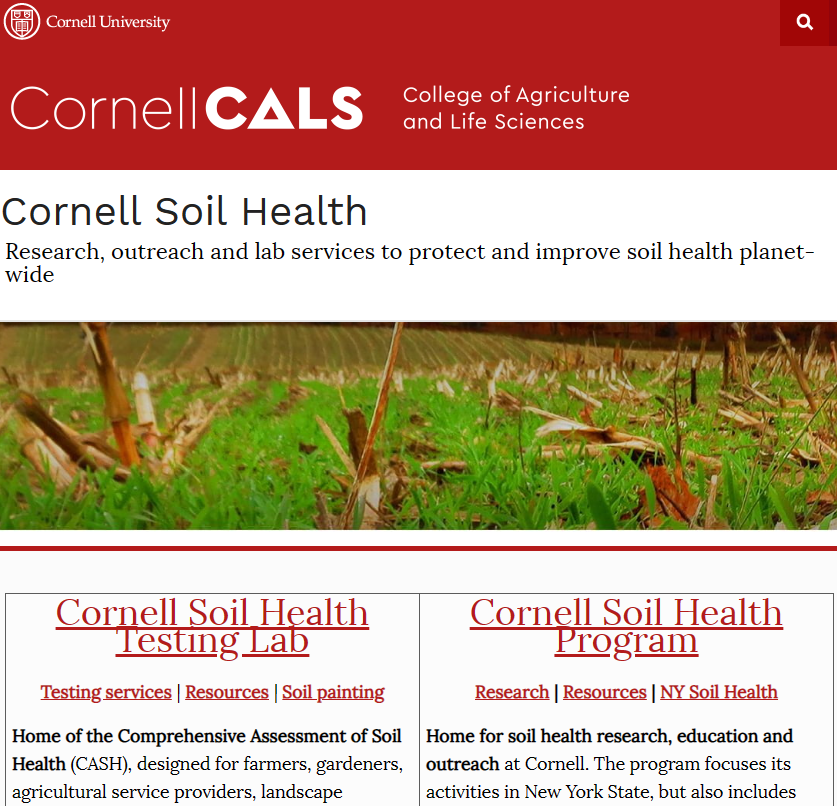Cornell Comprehensive Assessment of Soil Health

Improved soil health can lead to increased productivity, reduce the need for external inputs, and increase farm resilience to severe weather events. The Cornell Comprehensive Assessment of Soil Health was created to help farmers develop appropriate management solutions to build and maintain healthy soils. The Soil Health Team offers information, extension support, and testing services to farmers throughout New York.
A copy of their framework manual for assessing soil health is available for download below along with links to the soil health assessment website and their chapter relating specifically to climate mitigation.
Website: http://soilhealth.cals.cornell.edu/
Framework Manual: Comprehensive Assessment of Soil Health
- Provides an overview of the concept of soil health.
- Describes soil constraints and soil quality issues common to soils in New York and the Northeast region, especially in vegetable and field crop production systems.
- Provides guidelines on how to conduct in-field qualitative and quantitative soil health assessment.
- Provides a how-to guide for proper soil sampling.
- Provides an overview of laboratory methods used to assess the health status of soil, the soil health report, and their interpretation.
- Identifies management strategies for improving soil health based on measured constraints.
- Provides links to additional soil health and soil management resources.
Courtesy of Department of Horticulture, College of Agriculture and Life Sciences, Cornell University
Developer: Cornell University
Cost: Free – $50 per sample
Time Investment: Moderate – High
